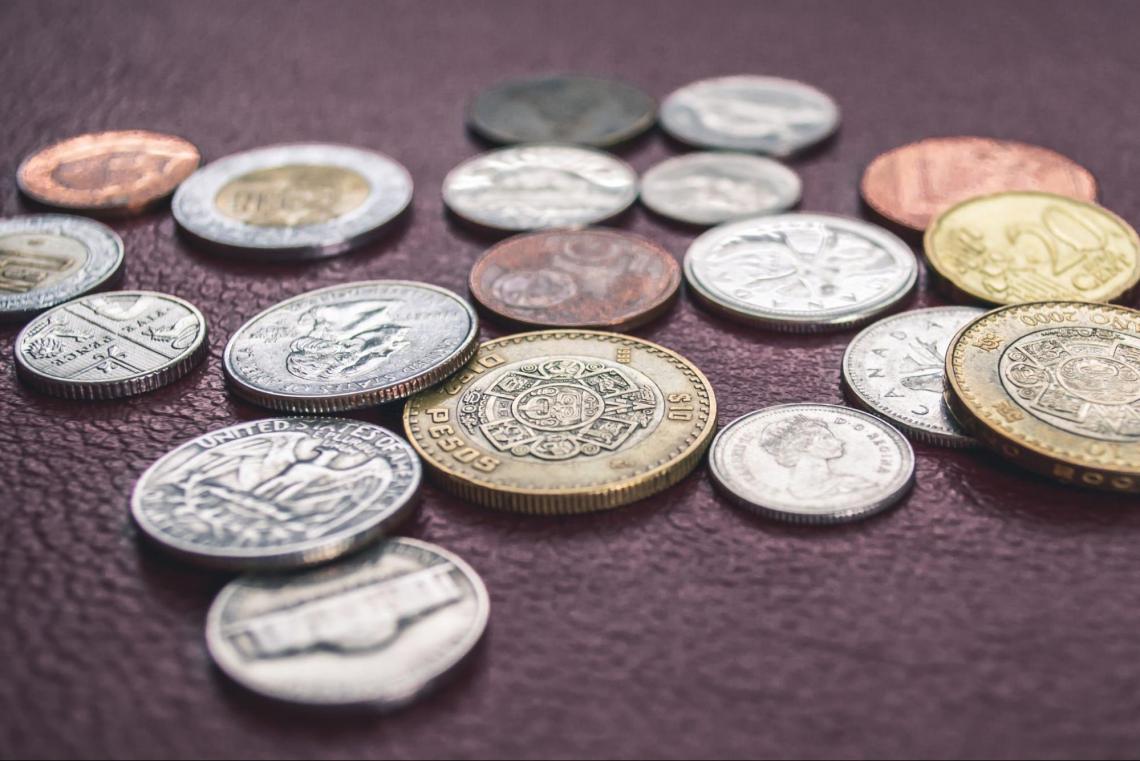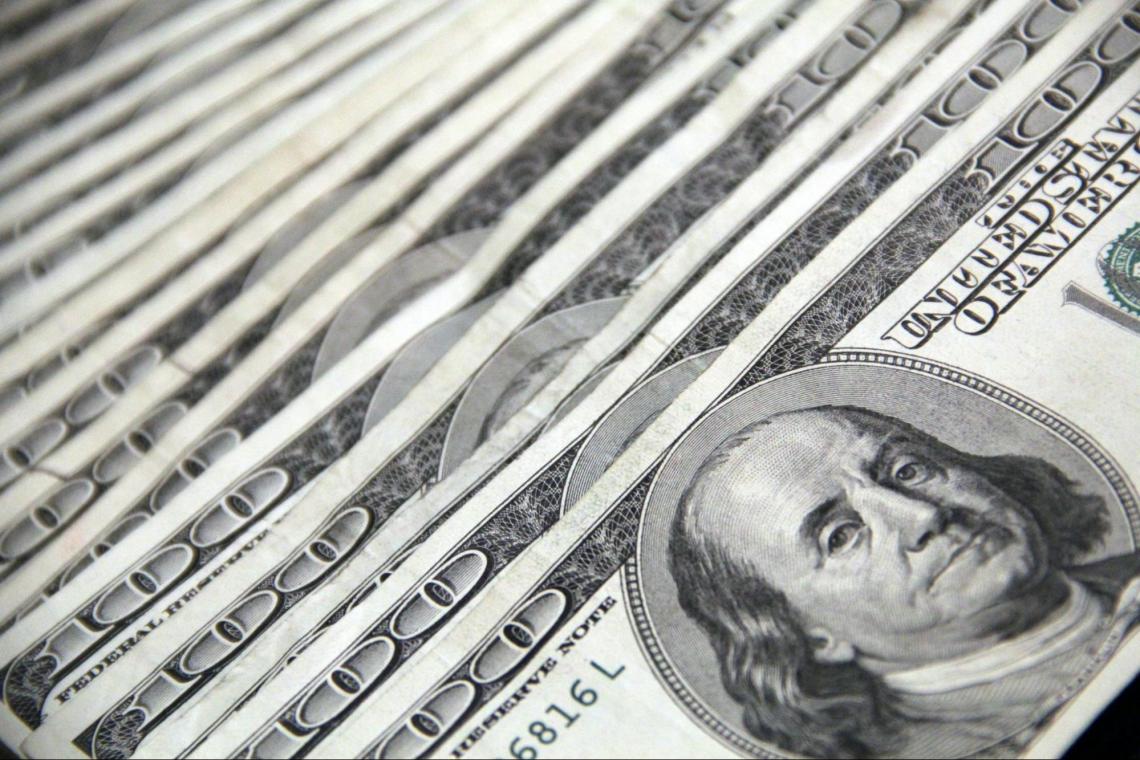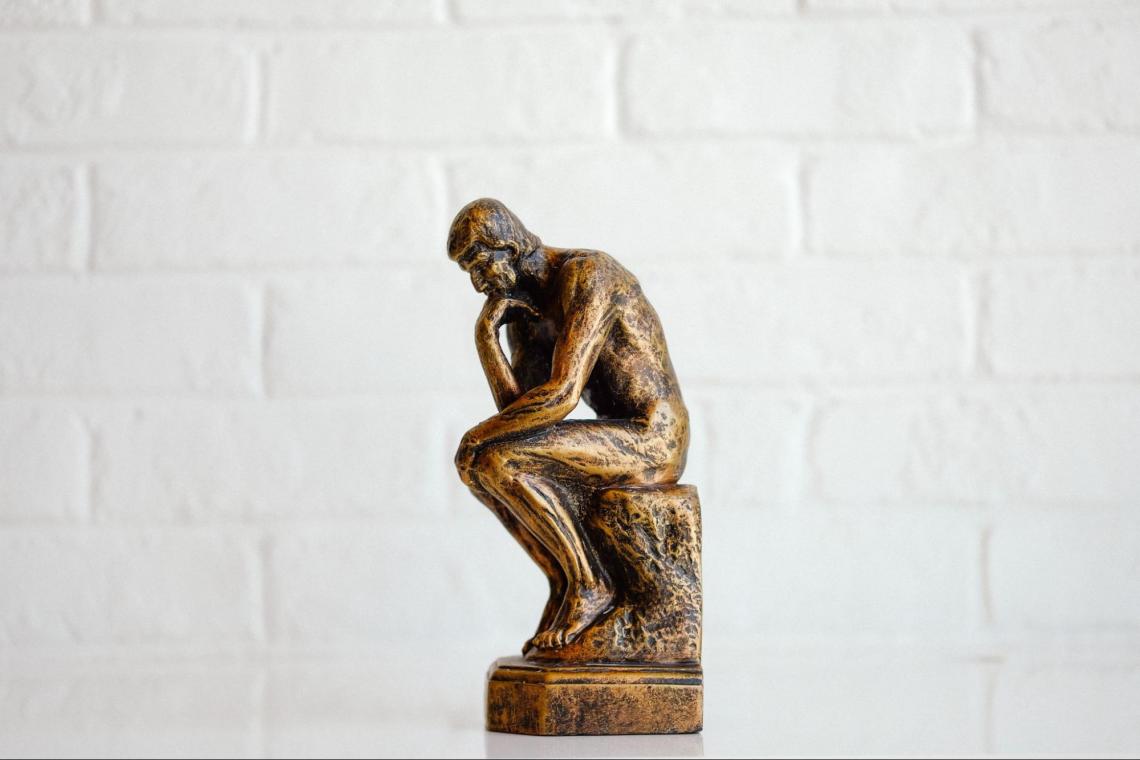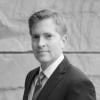Homo Economicus
It is like a rational person with a utility function in their mind and a powerful computation ability, always making the best decision and maximizing their utility.
The first thing every economics student is taught is that resources are always scarce. This is the burden we will carry on our shoulders for the rest of our days if we consider that economics is exciting enough to dedicate a lifetime of specialization to it.

However, we all have an economic side; since the times of the caves, there has been organization and division of labor according to the individual capacities of each of the subjects of the communities.
This choice of tasks was not random, but depending on what was considered most convenient for the group, the activities of each individual were assigned. This is what interests political economy, the nature of man as a rational and thinking being.
Although political economy does not deal with the nature of man, influenced by the social state, that could be the interest of other sciences, such as sociology or psychology, from a more individual perspective.
We are interested in man as a being who wishes to possess wealth and uses the means available to obtain it.

Studies and currents of thought, such as those of Adam Smith and David Ricardo, have been derived from the above idea. It is enough to look at the Wealth of Nations to realize how they influenced human behavior.
¨It is not the benevolence of the butcher, the brewer or the baker that provides us with food, but the consideration of their interest¨ (Adam Smith).
Although we consider man a rational being, we must consider him a selfish being who only seeks the satisfaction of his needs without caring about those of the rest.
But neither should we ignore that it is a social animal and needs the rest of the individuals to obtain many goods that allow it to develop fully.
It is when the exchange relations that interest economic science takes place and are regulated by the institutions in which said elections occur.
Returning to the fact that resources are scarce and the individual pursues his interests, thus intervening of institutions (state) is necessary to regulate social relations. Man must choose which of his needs are most urgent to attend to and which must be postponed.
It is then when a man uses rational choice, allowing him to behave in a "rational" way in the face of economic stimuli, based on the information he knows and has at his disposal, to act accordingly.
The concept of Homo Economicus
The rational expectations embodied in the neoclassical homo economicus are the object of study by economics students in the knowledge society where changes are accelerated and require a greater understanding of the rationality of economic agents.

As the neoclassical affirmed, the economic man needs to be rethought to respond to today's society's facts, phenomena, and economic events.
Maybe, this concept is the most misunderstood concept of all the economic theories, even if it is fundamental to all the economic theories. A bad understanding of this principle will make you misinterpret anything further.
A common way people describe it is like a rational person with a utility function in their mind and a powerful computation ability, always making the best decision and maximizing their utility.
And it’s not like this explanation is wrong and creates confusion with definitions, as rationality doesn't mean the same thing in economics, common sense, and methodological errors.
The previous explanation is more likely to describe Homo Cartesianus. But, yes, the agent would have all the information and be rational.
Rationality
There's one of the most criticized foundations of microeconomics rationality.
And again, some critics don’t have any sense, and it seems they never opened a book on Microeconomic Theory in their lives.

Rationality, in common sense, is more about using the brain to make choices, something like a negation of feelings in decision-making. If people can be rational in this sense, they’ll think only about utility and not about the emotional revenue things gives.
But, in economics, we do not deal with rationality in this way; it is more about how you will act only with a reason. Economists don’t care about your motivations to prefer one thing over others.
So, let's define rationality as an economist. Then, if you open a microeconomic theory book, there will be a chapter about preferences and their properties, even the most uncomplicated ones.

Preferences are the foundations of rational behavior. So it’s important to know that it uses logic and a different but intuitive notation.
- Completeness: Given two or more goods, one can be strictly preferred, weekly preferred, or indifferent to the other.
- Transitivity: Following the first axiom, we imagine it in a set of goods, in this case, three goods (a,b,c). If an agent prefers ‘a’ over ‘b’ and ‘b’ over ‘c,’ thus, he prefers ‘a’ over ‘c.’
Postulates of Homo Economicus
To see that Homo Economicus is not the unrealistic hypothesis commonly disseminated over the internet.
- Each individual seeks a multitude of goods;
- For each individual, some goods are scarce;
- Each individual is willing to sacrifice some of any good or goods to obtain more of other good(s);
- The more the individual has of a good, the lower his personal valuation of the marginal unit of that good;
- Not all individuals have identical preference patterns.
Do these postulates make sense to you? What do you think that means to deny each of these postulates? Does this make sense to you?
Rethinking Homo Economicus
The birth of the economic man is presented when humanity leaves the middle ages and knows the rebirth and the emergence of capitalism.

This period is known as modernity since society began to understand the phenomena from the concept of science and not from religious imperatives.
In modernity, there was a resurgence of science, and without a doubt, scientific knowledge provided better explanations for natural and social phenomena.
Under this scenario, the economic man is born in a world where reason was the public use of the intellectuals of his time and the current paradigm in epistemology or theory of knowledge.
Crisis movements are those led by Sartre and phenomenology, Lyotard, and the validity of boys, among others.

In a world where the disadvantaged take an important role, women are allowed to vote, and rights and racial equality are recognized. In turn, culture is respected, and the facts of reality can be interpreted through the prior experience of the subjects with the objects.
That is, we recognize the multicultural nature of humanity, which causes changes in the construction of science and knowledge. For this reason, it is important under the new way of building knowledge to reflect on the validity of our economic man.
Economic theory
Economic theory is based on the approach of Homo Economicus (the economic man) as a daily agent of economic reality, a basic concept for the individual's rationality and decisions; that is, the behavior or conduct of the individual is determined in said assumption.

The neoclassical theory affirms several assertions that seek to shape the rationality of the individual and thereby account for what happens in economic reality. Its main postulates are:
First is selfishness; Smith affirms that man is naturally selfish, largely supporting Rousseau's statement, "Man is born good, but society corrupts him."
In this sense, each individual's self-interest regulates human behavior, which shows that man is not altruistic; therefore, if Homo Economicus regulates neoclassical thought and individual decisions in the market, we can affirm that it is a non-social being.
Second, the moment that the individual values more particular and personal interest above the collective interest generates conditions of competition with the other members of society, which implies promotion and motivation to social relations of deception.
The search for the greatest possible satisfaction with the minimum effort for the means-ends the relationship.

Based on the premise that the human being seeks to satisfy certain purposes, “optimal human action maximizes the achievement of the proposed ends through the choice of the most appropriate means.”
Smith said that a means-ends relationship is a natural process composed of needs, passions, and feelings.
This natural relationship generates social exchange relationships based on mistrust since each individual seeks to achieve greater utility for the activity generated.
Economic negotiations in the market based on selfishness limit the well-being of society in the sense that it deteriorates trust between agents and promotes legal mechanisms to avoid deception in any decision to buy or sell merchandise.

This decision distances homo Economicus from society as a whole and evidences his asocial behavior, breaking the social contract that allows society's stability, especially in its members.
This is due to increasingly uncertain decisions and a mechanism that validates the information to mitigate the risk of fraud.
Every intentional action brings unintended effects beyond homo Economicus for not having certainty or control. In a way, economic transactions.
The economics of deception
The economics of deception shows the importance of the main problem-agent and moral risk, that is, there is no certainty in the market, showing that it is precisely the distrust and non-rationality of the individual, the breach of perfect competition that validates the economic non-rationality and the validity of the principal-agent problem.

For the above, the Nobel Prize in Economics Herbert Simon (1978) won the award for his studies on bounded rationality.
The Nobel Prize winner for economics, Simon, initially shows the conditions of social exchange and the central idea of the nature of the interactions of individuals, a theory used in sociology for social control.
The central idea here is that when two or more people interact, each expects to get something from the interaction that is valuable to him and is thereby motivated to give something up that is valuable to the others.
Social exchange, in the form of the “inducements contributions balance” of Chester I. Barnard and the author (1947) (Simon, 1978). The transactions of individuals are carried out at the point where the sacrifice of each of them generates utility for each one.

For Simon, the theory of behavior is based on four fundamental aspects. These are
- Situations that do not respond to the principle of rationality; for this, the case of executive salaries and company sizes are exposed;
- To understand why people can make altruistic decisions denying Smith's condition of self-esteem or selfishness;
- Taking business decisions in the market and final decisions with limited information.
- Simon rejects the validity of Economic Man and proposes Administrative Man, i.e., decisions are not made by the maximization model (Homo Economicus), choosing the best possible decision.
However, on the contrary, the decision is made by an administrative man, and he only satisfies his decision, i.e., he makes a non-optimal "best possible" decision, but rather sufficiently satisfactory even though it is not optimal, i.e., suboptimal or bounded rationality.
Neoclassical Economics
On the other hand, neoclassical economics is based on individual freedom. Economic liberalism, or the theory of economic freedom, is founded on free individual initiative motivated by the desire for profit: on free competition, regulating production and prices, and in the free play of natural or market economic laws.

The desire to be free is a classic foundation, largely inherited from the processes of the French Revolution and the history of humanity, which since ancient times always yearned for total freedom in its decisions.
For this reason, our Homo Economicus is a free being who values free will. In other words, capitalism gave the individual his freedom, an objective sought for a long time, granting him the power to decide over his workforce, which now belongs to him.
In other words, for the normal development of the model, private property must be guaranteed.
"The market does not exist and develops due to an immanent characteristic of human nature, but due to the historical emergence of two basic conditions, which are the division of labor and private property over the means of production" (Cuevas, 1993).
Said property, together with the division of labor and the labor market, generates the necessary conditions for the emergence of capitalism and, by definition, our economic man.

Now, if economists start from the assumption of rationality, embodied in individuals, in Homo Economicus, “Generality is achieved by conceiving the individual as a rational economic man and affirming that all humanity is as rational as him” (Hahn & Hollis, 1986).
This leads us to suppose that economic theory equates or gives similar value to rationality with selfish actions.
We deny the possibility of altruistic actions in society. Sometimes not only is there a lack of interest in consumers, but said lack of interest is excessive, which psychologists call asocial behaviors.
Neoliberal Ethics
Neoliberal ethics starts from an excessively narrow conception of the human being. Generally, homo economics is a product of modernity, a thought where the prevailing ideas exist and where the use of reason is the fundamental idea in society.

"For anything that exists, there must be some reason for it to exist," and a reason for it to exist as it does” (Palmer, 2004).
Whoever denies this principle is irrational. Now, how valid is this thought, even if it is logically consistent, and even more so when it is the target of harsh criticism from the postmodern movement?
The neoclassical theory states that the individual maximizes his utility by consuming those goods that generate satisfaction, in turn, the existence of the non-satiety condition.

The problem is to find a set of goods that maximizes the consumer's utility, subject to his budget constraint. The basic principles or assumptions in consumer preferences are developed in the well-known axioms of consumer theory.
The theory and model of rational decisions pose the decision-making solution of economic agents as a simple condition of human nature called rationality.
However, we can affirm that the theory of rational decisions shows the mechanism by which agents (consumers and producers) should and would like to make decisions, but not how they are made in everyday life.
The neoliberal model, more than individual freedoms, promulgates business freedom. In this sense, analyzing the maximization of consumers' utility is initially subject to maximizing the benefits of business people.
Conclusion
Why is it important to evolve the meaning of Homo Economicus?
Economic behavior is one more manifestation of social behavior, which implies that psychology and neuroeconomics are important in determining the social decisions of exchange and the very nature of why we are as we are.

A postmodern economic man hides his egoism from society in altruistic decisions.
The concept of homo economicus must evolve in the same way as the different economic concepts; however, in postmodern society, individuals have reproduced highly altruistic decisions, such as donations and volunteer activities.
However, said activities always generate a utility for individuals, whether status, moral, religious or tax reduction.
Neuroeconomics, a discipline to understand agents' behavior, offers us new forms of understanding and progress in economic theory. To the extent that economists understand the neural components of human nature, we can get closer to understanding decision-making in the market with greater precision.
It is essential to advance in complementing the mathematization of the economy with hypotheses and postulates of sciences such as biology. This combination will allow economists to moralize failures in economic analysis justified only in mathematical calculation.
It is essential to understand that man does not necessarily respond to an algorithm but rather responds to animal spirits, psychological factors, and neural factors; it is time to study the economy in a complex way.





or Want to Sign up with your social account?